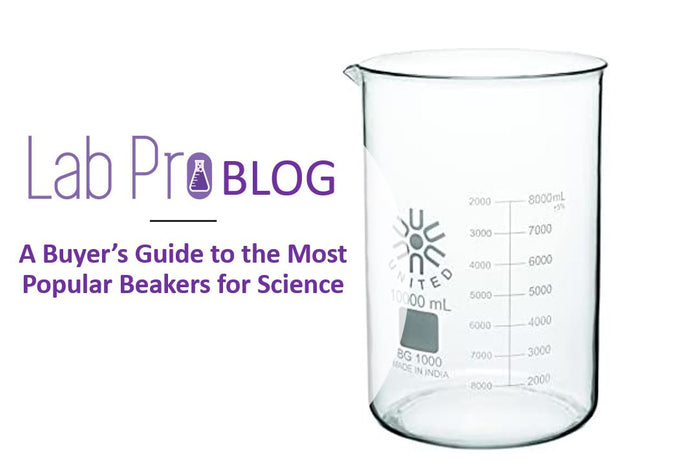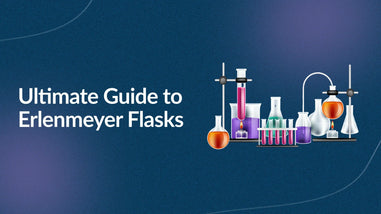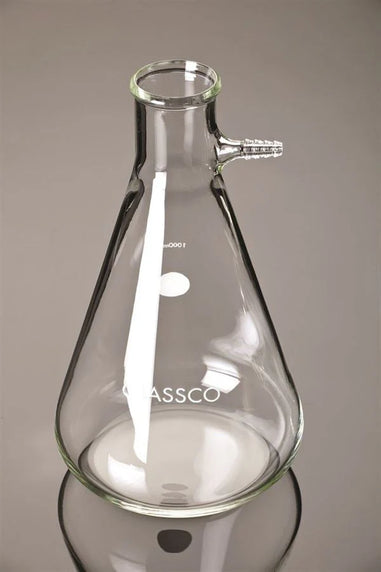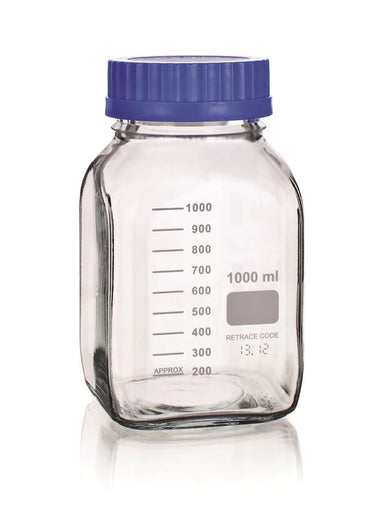- No products in the cart.
Beakers are one of the most widely used instruments in a science laboratory. While there are many uses for beakers, there are also several different types of beakers, each serving different purposes depending on the intended application. Choosing the correct beaker to use for your application is essential because it will ensure the most accurate test results.
Here, we will define what a beaker is, what it is used for, the different types of science beakers, and how to choose the best beaker for your particular application.
What are beakers used for in science?
A beaker is a container that is cylindrical in shape and is used to store, heat, and mix liquids in science laboratories. These containers have a flat bottom, a spout in the lip at the top, and measuring lines to measure the volume of liquid in the beaker.
They typically are made of glass because glass doesn’t affect the chemicals or samples contained in the beaker and withstands the majority of chemical reactions. Some beakers are also made of material that is non-corrosive and heat-resistant such as metal and plastic. Beakers range in size from millimeters to liters.
What are the 4 types of science beakers?
As mentioned previously, there are several different types of beakers. The different types are based on the shape of the beaker.
1.Griffin Beakers:
Standard beakers are also called Griffin beakers. These containers are lower beakers that have a height that is around 40% of their diameter.
2. Berzelius Beakers:
Taller beakers are known as Berzelius beakers which are tall and thin and have a height that is double their diameter.
3. Crystallizer Beakers:
The third type of beaker is known as a crystallizer. The main thing that distinguishes the crystallizer from the Griffin and Berzelius beakers is that crystallizers typically do not have measuring lines etched on them.
4. Phillips Beaker:
The fourth type is known as the Phillips beaker. Phillips beakers have sloping walls and graduate toward the top of the beaker. Therefore, Phillips beakers are narrow at the mouth and wider at the base.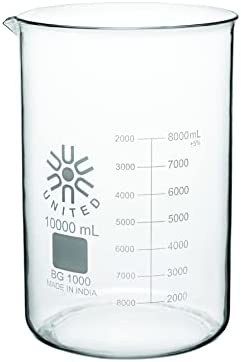
How do I choose a beaker?
Each beaker serves its own purpose. So it’s important to use the beaker that best serves the application and will produce the most accurate test results. Griffin and Phillips beakers are mainly used for the day-to-day tasks of mixing, measuring, decanting, and the containment of samples and chemicals used during lab processes.
For titration experiments, Berzelius beakers are typically used. These beakers are better suited for experiments where a volume of solution of known concentration is added to another solution in order to determine its concentration. For a hot bath heating application, flatform beakers provide the most accurate results because they are better at withstanding hotter temperatures and transferring heat.
Although not a type, beakers made out of plastic material are usually designed for gamma spectral analysis applications.
Which beaker is most accurate?
The most accurate beakers are going to be beakers that have measuring lines to measure the volume of the liquid in the beaker. Graduated cylinders or beakers are known to produce the most accurate results.
Where to Purchase laboratory Beakers
Lab Pro can provide you with all your laboratory beaker requirements. Various sizes are available and ready to ship.
About Lab Pro
For over 40 years, Lab Pro Inc. has been committed to delivering the highest quality critical cleaners, hand tools, chemicals, lab equipment, distance learning kits, lab supplies, and cleanroom PPE apparel to medical device companies and laboratories worldwide. To learn more, visit the biggest Lab Supply showroom in California, or contact us online or at 888-452-2776.



































